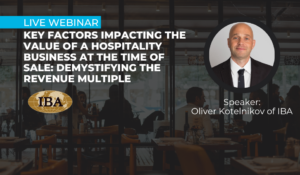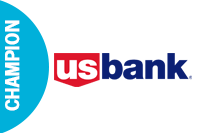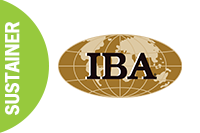This column originally ran in the California Society of Association Executives magazine.
“I could have been better… And then, when I walked down the street, people would have looked and they would have said, ‘There goes Roy Hobbs, the best there ever was…’” (From the 1984 TriStar Pictures film “The Natural” starring Robert Redford as Hobbs)
Sitting on his hospital bed recovering from surgery, Roy Hobbs reflected on how different his baseball career could have been. He fully comprehended his legacy – his brand – as a professional baseball player. As outstanding a player as he was, Hobbs felt in his heart that he could have been even better had certain things worked out differently.
[expander_maker id=”1″ more=”Read more” less=”Read less”]
The best there ever was. I’m guessing that’s a personal brand legacy that any one of us would like to own, no matter what we do for a living.
So what’s stopping you?
What is your legacy? Have you given it much thought? Your personal brand works to help determine your legacy, how you are viewed by others. It is huge. And it’s 100% yours and only yours. That’s pretty cool, when you think about it.
Everyone has a personal brand, whether they want one or not. Some people push back on that, because they don’t see themselves as a brand, per se. That’s too bad, as they are neglecting the power of their brand, and they shouldn’t do that. Much of what we accomplish in life (or don’t accomplish) ties back to the essence of our brand characteristics.
Why is my personal brand so important?
Your brand can enable you soar, and it can also hold you back. It’s that important. And it’s largely up to you on how you approach it.
Branding is how others perceive you, the world’s window into how you roll. Thus, it affects how others treat you, respond to you, believe you, trust you, follow you, spend time with you, respect you, engage with you, buy from you, listen to you, admire you, hire you, promote you — or not.
It’s essentially a work-in-progress, since we’ve all had a certain set of characteristics evolving with us since birth and through our formative years. In our professional lives, our personal branding carries a lot of weight in our careers and with our peers and customers. Indeed, personal branding is a life-long journey.
What can I do to elevate my own brand?
Let’s explore how you can enhance or re-invent your personal brand — essentially to grow it, nurture it, and make it work for you. A good starting point to self-assessment is this question: What do I bring to the table? Start by defining your VALUE to others, and the reasons why people may or may not “buy” from you, whether you are in actual sales, or leadership, support, technology, service, whatever.
Wait a minute. So this is all about being in sales? No, but an element of selling comes into play here. For example, while at your job, when you bring up an idea or offer a solution, aren’t you in effect “selling” your idea to others? Your branding characteristic of being believable will determine whether people “buy” what you are saying or not. Leaders often have to “sell” ideas, goals and direction to their teams in order to get forward movement.
Branding isn’t just for companies
Of course, branding is easy to comprehend when we think about some of the iconic companies present in our lives every day, many of whom we grew up: Gerber, Hershey, Coke, Pepsi, Nordstrom, Wal-Mart, Microsoft, Apple, Amazon and Disneyland. Those brands conjure up some type of emotional response in us, triggering an urge to buy or not to buy, to believe in them or not, depending on how we perceive the brand and the value it brings to our lives for the money we spend on it.
Why do we say yes to some people and no to others? There are many factors, but I’m betting that their branding promise and fulfillment of that promise plays a role in those decisions.
Speaking of companies, what gives certain companies better brand reputations than others? Product quality and attractiveness certainly plays a role. It’s also how those products make us feel, or what they enable us to accomplish.
But think about this. Isn’t it also very often the elements of excellent customer service, effective communications, and the ease of doing business with organizations that brings us back again and again? And how are those elements delivered? They are delivered by — and very much dependent on — their front-line people, those team members who present to us their own personal branding characteristics when we interact with them.
The future of your business can hang in the balance on someone’s own brand delivery
Many times people walk away from a good product they want to buy because of the front-line treatment they get. Good product branding/marketing brought them there — and bad personal brand characteristics delivered by a staffer sent them away.
For example, “I let my membership drop because their customer service is so lousy” (something I’ve heard more than once) speaks to the poor branding characteristics that an individual customer service rep showed that particular association member. They represented the organization in the wrong way. They were the face of the association and something went sideways with their delivery, response or attitude. The overall organizational brand perception was sullied by the poor personal brand performance of someone. Bye-bye.
Branding-wise, with companies and their team members, the whole should be greater than the sum of its parts. In other words, 1 + 1 = 3.
Seven key branding characteristics for you to build on
In my work with people at all levels of organizations, I’ve identified seven key characteristics or attributes that define a large part of an individual’s personal brand. How do you stack up here?
Uniqueness: What sets you apart from the crowd? What makes you different from others, from your competition?
Signature traits: What do you bring to the table? What traits are you best known for?
Image: What imagery do you create? How do you look to others? It may sound trite in talking about looks, but think about it. People make branding decisions all the time based on how someone looks or carries themselves. Do you walk or sulk? How do you dress? How is your hygiene (halitosis is a bad branding characteristic!)? How are your body language and facial signals?
Reputation: It’s what others think of you, not what you think of you. You have to earn your reputation in others’ eyes. Be careful of this one. Some people have puffed-up self-images and think more of themselves than others actually do. Big surprise there.
Principles: What do you stand for? How do others perceive your ethics, your sense of right from wrong? What guiding principles drive your decision-making?
Attitude: Are you known as “Mr. or Ms. Negative”? Are you candy-corn super-sweet all the time? Are you always over-the-top with even the simplest things? Are you known as an optimist, or a pessimist? Are you cheerful and approachable, or snarly and gruff?
Skill Set/Talents: This is the get real characteristic. At some point, you have to have the skill set and talents to pull off whatever it is you are trying to do. You can have the best attitude and intentions in the world, but if you can’t do the job correctly because you don’t have the skills, well, you know how that will turn out. If you need to add skills or learn new things to improve your brand, don’t wait for Christmas.
Protect your brand – fiercely!
I can’t stress this strongly enough. It may take years to build a brand (just ask someone who has built their own business), but it can be smashed into pieces in one idiotic moment. Google any one of the hundreds of celebrities, companies, and sports stars who have bungled their brand by doing or saying a stupid or dangerous thing.
And, for crying out loud, BE AUTHENTIC!
Don’t believe the old proverb that “if you can fake it, you can make it.” That’s not really a long-term, genuine proposition, is it? If you were that great of an actor, you’d be in Hollywood. Be yourself. There’s only one of you so be proud to own it.
If you build, nourish and protect your brand properly and carefully, who knows? Just like Roy Hobbs, maybe someday someone might say as you walk by them: “There goes the best there ever was.”
Gary Hernbroth, Chief Motivating Officer — Training for Winners
Gary is a nationally recognized and engaging speaker, trainer and performance coach who has been a presenter at several WHA annual conferences over the years. He parlayed his spark of hospitality from 18 years in the hotel and meetings industry into a career helping teams re-tool for success, especially in challenging and disruptive times. He knows the ins and outs of hospitality operations and sales, and he understands what the customers want, too. Industry professionals value Gary’s straight-talking, real-world approach that he brings to his customized training programs and presentations. He’s helped an A-list of clients kick up their games in management, sales, branding and service. He coined the phrase “Twist the Familiar”, which is the title of his upcoming book. Gary can be reached at:
Phone: 925 – 736 – 9392
Website: trainingforwinners.com
[/expander_maker]



















![[Class, May 20] ServSafe Manager, Kent](https://wahospitality.org/wp-content/uploads/2018/07/CALEND1-150x150.png)








